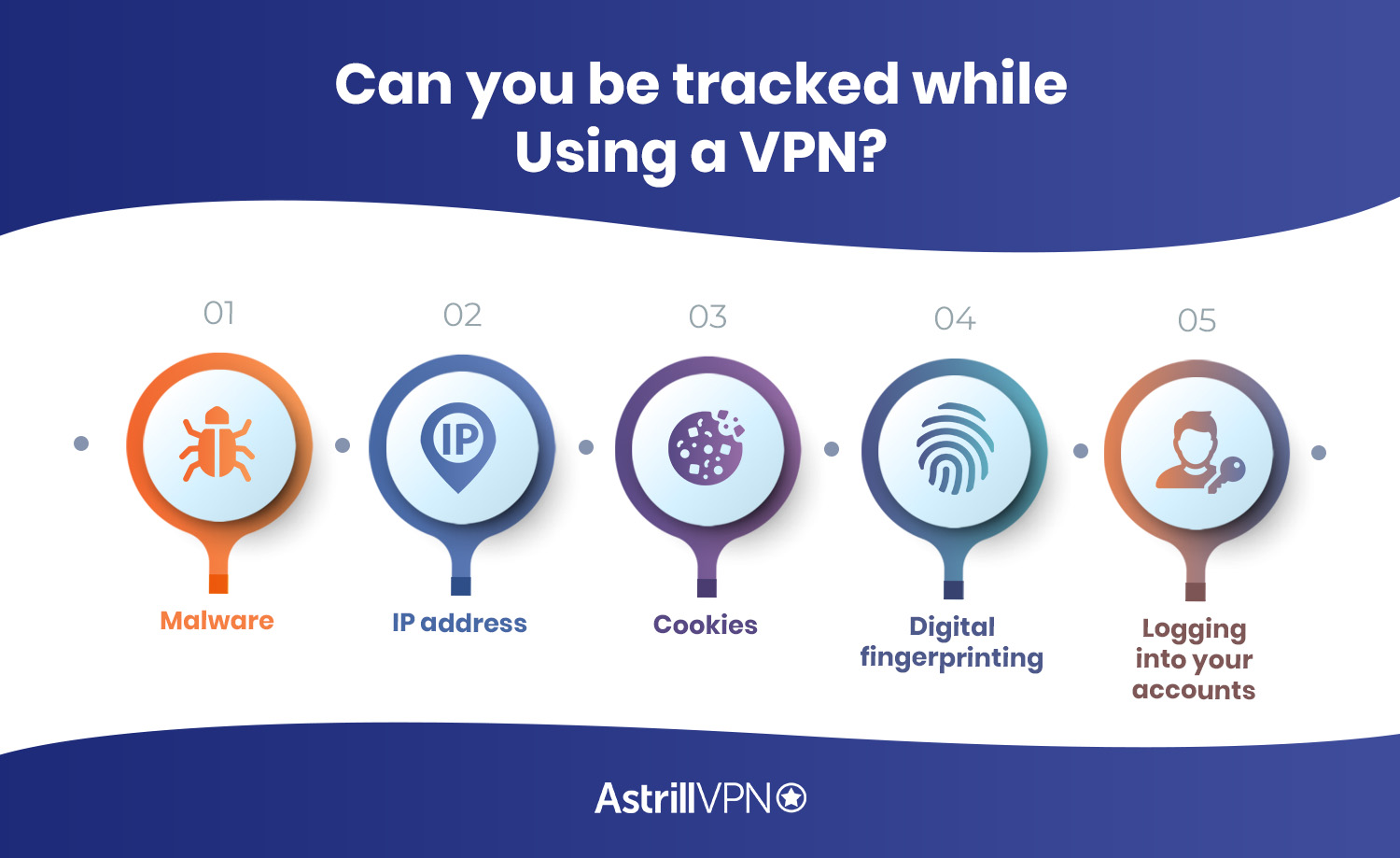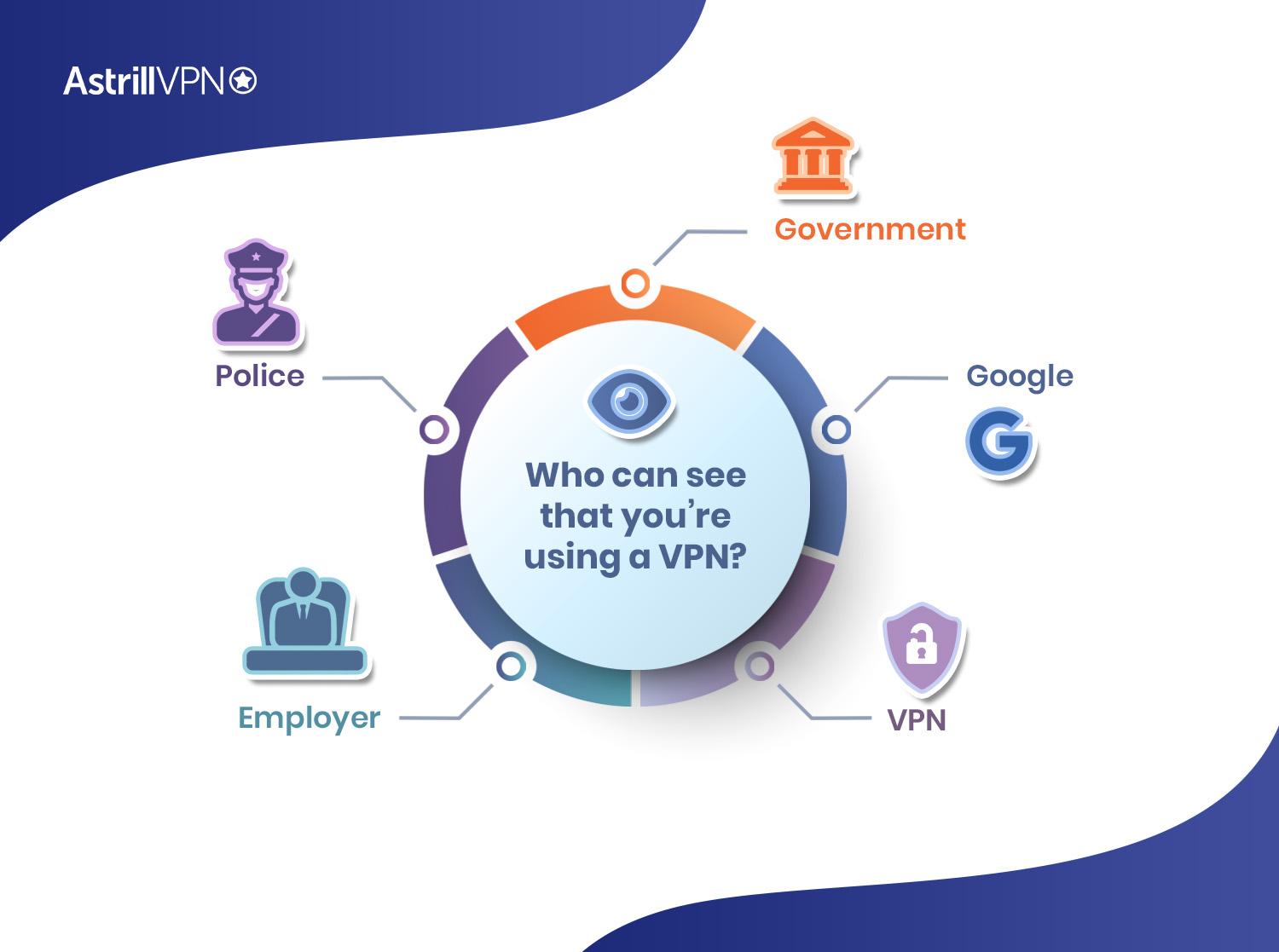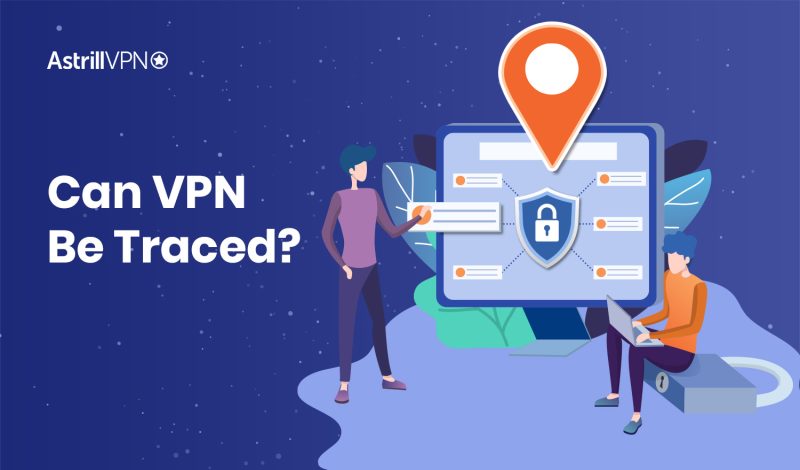Table of Contents
ToggleWhat does online tracking mean?
Once you start using VPN, the next question is whether it can be tracked. Can anyone trace VPN? Does anyone know that you use it? Can your identity or IP address still be tracked? There are a lot of such ancillary questions that can come to your mind. So, as a VPN provider that advocates online privacy and which works to enhance our users’ privacy, we will try to answer these questions today. Because being safe and secure on the Internet is the need of the hour.
Can you be tracked with a VPN?
Yes, You can be traced with a VPN, but that is possible because of some factors. A VPN is a security tool that protects you by hiding your online activity, but it does not mean that you cannot be traced. In another way, it makes your activity anonymous, not you.

Here are some of the ways how you can be tracked despite using a VPN:
Malware
If you have malware downloaded to your device, by mistake, then it can result in data theft and personal information leak. Using Astrill VPN can protect you from malware but if you have malware in your system that you downloaded while you were not connected to a VPN server, then there is nothing a VPN can do to protect you.
IP and DNS Leaks
Another way you can be traced while using a VPN is if your IP address and your DNS leak. This happens when you use a VPN with weak encryption and unreliable security protocols.
A VPN is supposed to hide your IP and DNS and provide you with end-to-end encryption. If you use Astill VPN, it will mask your IP and DNS and ensure that there are no DNS and IP leaks. This way, you are untraceable.
Cookies
Advertisers use cookies to track you wherever you are because cookies are trackers. Using a VPN does not protect you from cookies; even if you are connected to a VPN server, advertisers will still be able to track you. However, you can disable cookies from your browser’s settings to bar advertisers from dropping a tracker on you.
Digital fingerprinting
It is somewhat similar to what a Cookie is, but the difference is that it gathers data about your computer settings, software, web browser preferences, etc. After collecting all of this data, the system creates a digital portrait of you from the information it gathers through fingerprinting.
A VPN can hide your IP, and DNS and encrypt your traffic, but digital fingerprinting is not something that can be avoided with a VPN.
Logging into your Accounts
If you try logging in to your Google account and using a VPN, it will still identify that it’s you, obviously. A VPN cannot change the fact that only you have your account credentials. When you log in to your account, Google will start monitoring every step that you take after that, even though you are using a VPN.
Disclosing information online
Using a VPN will be no help if you reveal your true identity online. For example, regularly posting about your area, address, or where you’re traveling or staying would expose your location and identity. In such a case, a VPN is useless because it can hide your IP address, but when you are already posting your locations, it cannot help you.
Gauging the Degree of Privacy
While a VPN can hide your online activities, there is a limit to its power. Although premium VPN providers like Astrill distribute their server IP ranges across different users to make VPN tracking more complex, there can still be situations where the envelope is pushed.
In exceptional cases, entities such as your ISP can use advanced tools and mechanisms to try to enter your private network. But, then again, this is limited only to VPNs that use the obsolete Point-to-Point Tunneling Protocol (PPTP) and others based on Data Encryption Standard (DES) and Triple DES.
Modern frameworks such as OpenVPN and Internet Protocol Security (IPsec) that use Advanced Encryption Standard (AES) cannot be decrypted as they use longer keys in their algorithms based on a concept known as symmetric keying (Rijndael). For this reason, the key is to choose the right VPN that uses the highest possible level of encryption.
Who can see that you’re using a VPN?
Now that you know the difference between being secure and being invisible and also the extent of anonymity a VPN provides, let’s discuss who can see that you’re using a VPN:

ISPs
Since you are using the network connection provided by your ISP, it knows what you are doing over their network. Though, when you are using a VPN, your ISP loses control over your activity and bandwidth, this can give them a hint that you are using a VPN.
Even if your ISP does get to know that you are using a VPN, they will still not be able to track your activity by any means.
Streaming Platforms
Streaming platforms like Netflix, Hulu and Disney Plus have smart VPN blockers on their servers. These VPN blockers cross-match the IP and DNS and if they do not correlate, then they block user’s access. This is how these platforms detect that you are using a VPN.
Nevertheless, Astrill VPN has smart features and a strong encryption protocol that can easily bypass this VPN blockage and keep you anonymous over these platforms.
Hackers
Hackers can easily notice that you are using a VPN because when they’ll try to attack your data through an unsecured network, they’ll find your traffic encrypted. This failed attempt of theirs can tell them that you are protected through a VPN.
Who can Track You Through a VPN?
Now that we know about ‘who can see that you’re using a VPN’, let us discuss who can track you through a VPN:
Can the government track you through a VPN?
Yes, they can! However, they will have to go through a lengthy process for that. Also, a government would never try to track you through a VPN unless they believe that you have committed a crime.
First of all, they will have to go to your ISP and get your activity logs from them. Then if they notice from the logs that you have been using a VPN, they will have to contact the VPN provider for their logs.
If you are using a reliable VPN like Astrill, that does not keep user logs, then they can never track you down.
Can Google track you through a VPN?
Yes, Google can track you through a VPN if you are using your own Google account, despite being connected to a VPN server. A VPN will hide your IP and DNS but if you are logged into your Google account and making google searches or visiting websites, that activity will be recorded by Google.
Can the police track you with a VPN?
If the police wanted to track you down, they will have to go through the same procedure that a Government would have to go through. Police cannot track your actual IP if you are using a VPN, which means they cannot track your actual location. Thus, they will have to contact the ISP and VPN provider to look at your logs.
If a VPN disconnects, can you be tracked passively?
Yes, that can be the case. Many VPN providers do not have a Kill Switch feature, which is why they give away user’s actual IP if the network connection fluctuates or disconnects. Astrill VPN has all of this covered and it ensures that you do not become vulnerable even if the network disconnection happens.
Is Free VPN a Reliable Option?
Free VPNs are not a reliable option, rather they can put you in more trouble than having no VPN at all. Free VPNs are not recommended for a variety of reasons like:
- They keep logs of user activity.
- Weak encryption protocols.
- Low-grade safety features.
- Constant IP and DNS leak issues
Free VPNs are not actually free because they collect your data and sell it forward to advertisers and data mining companies. That is how they generate their revenue, by selling user information. If you were using a free VPN, and someone wanted to get to you; they can easily buy your activity logs from these free VPN providers.
How to Do a VPN Detection Test
You can test your VPN by following these threen simple steps:
- Go to What’s my IP Address and note down your current IP address.
- Now Open Astrill VPN app and connect to server.
- Reload the ‘Whats my IP Address page’ and see if it shows a different IP than before.
Make sure that the changed IP address is of the location that you have connected to.
Tips for Choosing a Secure VPN
Choosing a secure VPN means that it should be the one that protects your identity and also make you untraceable to the utmost extent. Following are some of the features that an actual secure VPN has:
Network of Secure Servers
Choose a VPN that has obfuscated servers because that way, no one will be able to detect that you are using a VPN. Astrill VPN offers highly secure and obfuscated servers, that allow you to use a VPN, even in the regions where VPN usage is restricted, like China.
Kill Switch
A Kill Switch feature is a must to have a thing in a VPN provider because it protects the user from being exposed when the connection from the VPN server drops.
Military-Grade Encryption
Always choose a VPN that offers AES 256-bit encryption, which is also known as military grade encryption, It is the toughest encryption protocol that is being offered in the VPN industry.
No-Logs Policy
A reliable VPN is one that does not keep any user logs and has a strict no-logging policy. The basic purpose of a VPN is to provide users ease of mind that their activity is not tracked and if the VPN provider itself is keeping logs of user activity, then there’s no trust. Astrill VPN has a strict no-logs policy because it believes in complete user privacy.
How anonymous are you when using a VPN?
When you use a VPN, your online activity is encrypted and routed through a VPN server, creating a secure tunnel. As a result, it can be more difficult for third parties to monitor your online activity, and your IP address (which can be used to track your location and device information) is hidden behind the VPN server’s IP address.
A VPN provides a great deal of online anonymity, but it does not make you completely anonymous. The VPN provider you’re using can keep a track of your online activity and potentially keep logs of your activity. In addition, if you log in to websites or services using your actual information (such as your name, email address, or payment information), that information can still be used to track your activity.
What Things Does a VPN Hide?
A VPN can hide several things, including:
- The first thing it does is replaces your actual IP address with that of the VPN server you are connected to. This makes it harder for websites and online services to track your online activities.
- A VPN encrypts your internet traffic, making it difficult for anyone to see what you are doing online, including your internet service provider, government agencies, and hackers.
- Since a VPN hides your IP address, it can also hide your physical location. This can be useful if you want to access content that is restricted in your region.
- A VPN can help protect your identity online by making it difficult for anyone to associate your online activities with your real identity.
Conclusion
‘Can VPN be traced’ is a question that is common among privacy tool users and knowing the specifics can certainly help in addressing it? As a user who is exposed to a more and more user-hostile environment online, it is important for you to stay inside the fence. And getting a fast and reliable VPN like Astrill which supports server hops is your perfect bet at constructing one.
FAQ
Can a VPN be hacked?
No, it is impossible to hack a VPN itself. However, a network that is protected with a VPN can be hacked, only if you are using a VPN with the weak protocol.
Do VPN Companies Track Your Data When Using a VPN?
Yes, there are some VPN providers that log your data when you are using their service. However, Astrill VPN is one of the industry leading VPNs that do not keep user logs.



No comments were posted yet